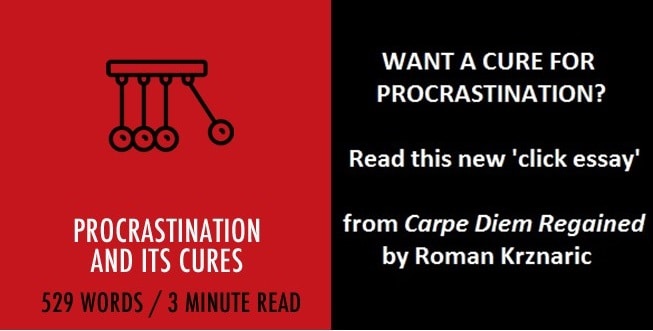If you’ve ever cursed yourself for procrastinating, then you’re in good company. Procrastination is one of the most widespread psychological afflictions of the modern era: it chronically affects 15-20% of adults, 95% of whom wish they could reduce it.
Of course, postponement can sometimes be a wise move – you might defer a decision to buy a house because you’re waiting for the surveyor’s report or to see if house prices might fall in the near future. But this doesn’t count as true procrasination, which can be defined as ‘to voluntarily delay an intended course of action despite expecting to be worse off for the delay’. So we might put off doing our tax return, finishing the DIY, or leaving a relationship that isn’t working.
When writing my new book Carpe Diem Regained, on the art of seizing the day, I would regularly delay starting to write in the mornings by having a quick look at my emails and social media feeds – usually losing half an hour or so in the process. I calculated that I spent at least 21,500 minutes not writing the book.
Why delay something if we think it will make us worse off? We may not do our taxes because it’s a time-consuming drag. But when it comes to the big decisions in life, the most common reasons for putting things off are fear of failure and lack of self-confidence.
So here’s the big question:
IS THERE A CURE FOR PROCRASTINATION?
And here’s the answer: No, and maybe Yes.
With respect to No, twin studies show that around 22% of procrastination is genetically determined. So there’s not much you can do about that.
But here’s the good news. When it comes to the other 78%, a cure might be at hand. You can find out what it is – with a little help from Ralph Waldo Emerson – in my new 3 minute ‘click essay’, which is launched today: Procrastination and Its Cures.


Please come speak in New York!! We need you here!